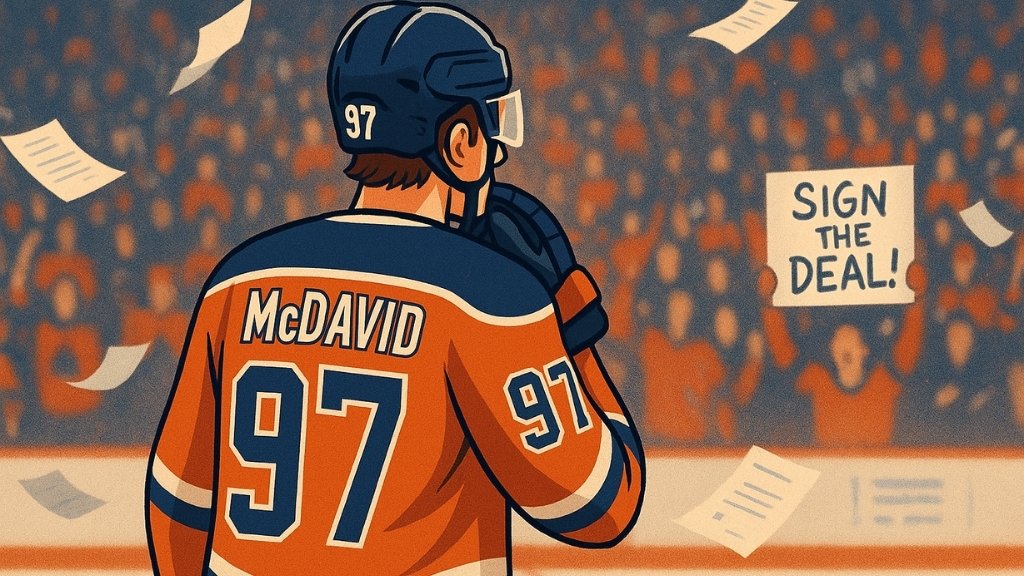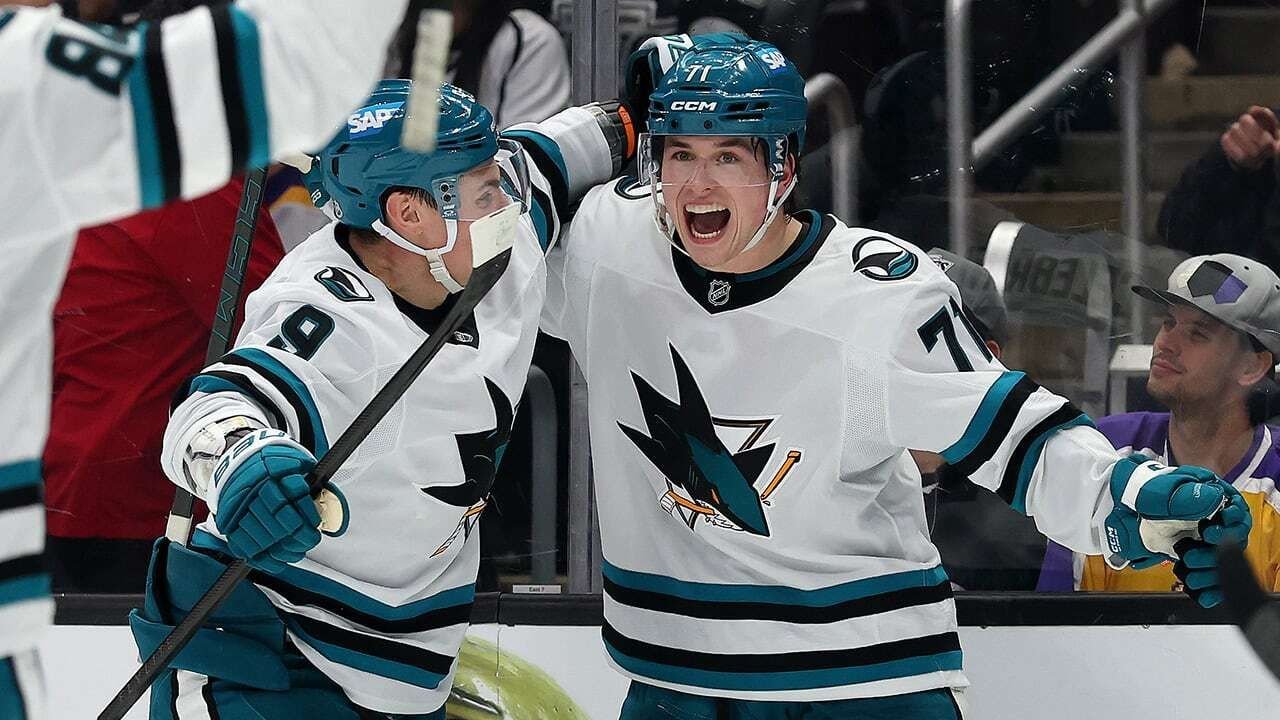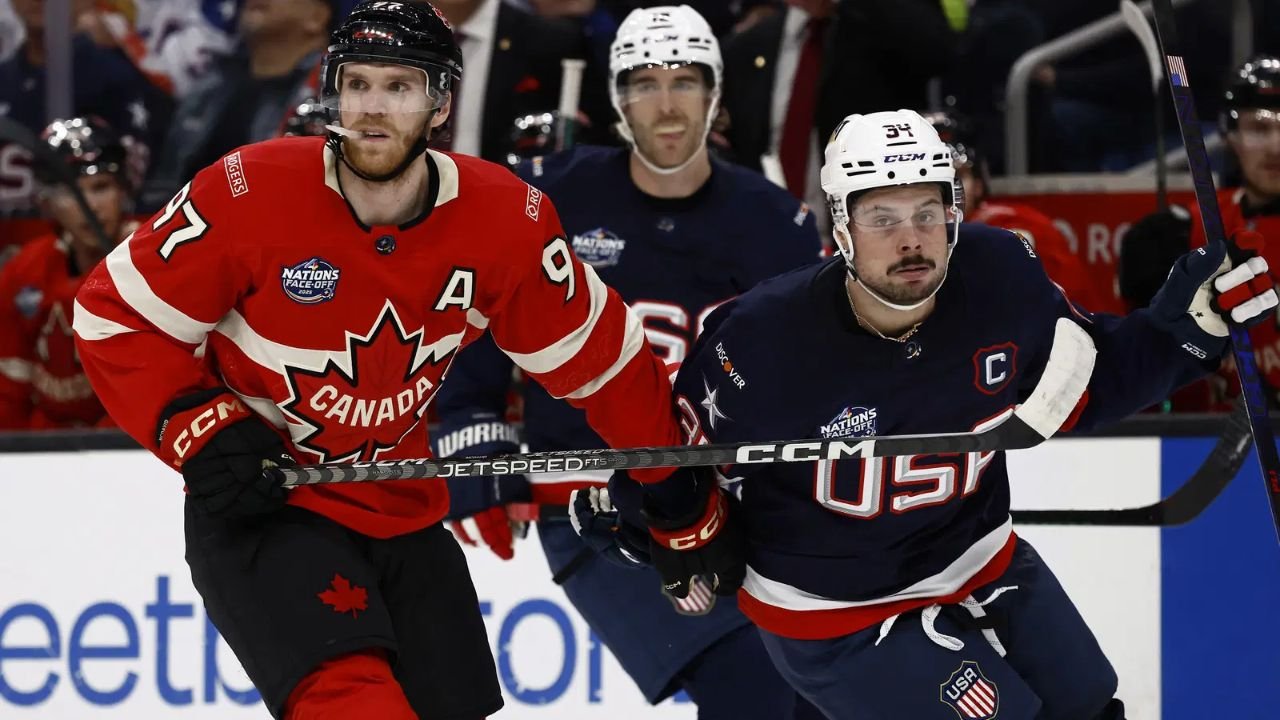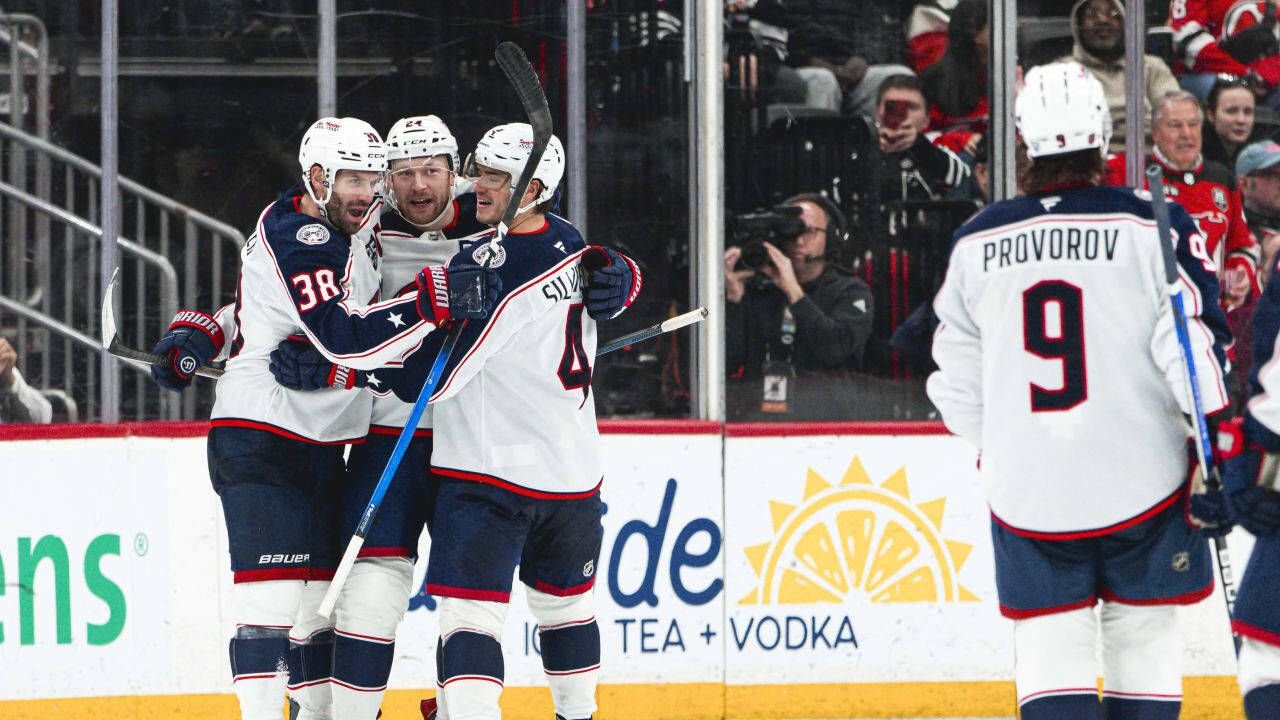Edmonton opened camp with an uncomfortable truth: Connor McDavid has not committed to a new deal, and the delay has become the talk of the league. A short interview clip turned into a days-long conversation, not because McDavid professed unhappiness, but because of one line—his assurance about the 2025–26 season coupled with an open-ended “beyond that remains to be seen.”
In a market that has lived through star-driven sagas elsewhere, those six words ricocheted through fan circles and sports radio, instantly reframing optimism into dread.
What McDavid Actually Said—And Didn’t
McDavid emphasized he and his family love Edmonton and that his singular focus is winning this season. He also made clear that the magnitude of a life-shaping decision warrants time. Read plainly, it’s a superstar asserting control of his timeline rather than issuing an ultimatum. Yet in the internet echo chamber, the clipped sound bite overshadowed the broader message, becoming a Rorschach test for every fear Oil Country carries about losing a generational player.
Bowman’s Measured Tone vs. The Fanbase’s Nerves
General manager Stan Bowman projected steady confidence, saying he takes McDavid at his word about wanting to win in Edmonton and sees no value in forcing a self-imposed deadline. Publicly, the Oilers are unruffled; privately, nobody doubts the urgency of securing their franchise cornerstone. That contrast—front-office calm vs. fan anxiety—has defined the week, with Bowman’s reassurances doing little to slow the speculation factory.
Why This Feels So Personal in Edmonton
Hockey emotions in Western Canada are always turned up to eleven, but the McDavid question lands differently after years of watching other Canadian storylines twist in the wind. Sportsnet framed it against parallel sagas: Toronto’s Mitch Marner discourse, Vancouver’s constant parsing of Quinn Hughes’ long-term future, and Calgary’s hard lessons after Johnny Gaudreau and Matthew Tkachuk moved on. Edmonton fans know those chapters by heart—so even a neutral, wait-and-see comment from McDavid can feel like a plot twist.
The Draisaitl Signal—and Its Limits
Many assumed Leon Draisaitl’s eight-year extension (beginning this season) would foreshadow quick McDavid news. The two families are close; the on-ice partnership is iconic. And Draisaitl himself downplayed the idea that McDavid’s process would “interrupt” the season, sounding serenely confident that negotiations will follow their own rhythm. Still, in a metro where every pause is a headline, even that vote of confidence hasn’t fully cooled the temperature.
From Clip to Wildfire: How Panic Spread
The spark was a 32 Thoughts interview clip shared widely on social platforms and dissected frame-by-frame. Within hours, talk shows and blogs amplified the “remains to be seen” fragment, turning a measured answer into a referendum on the franchise’s future. The speed of that spin cycle—more than any new information—pushed the mood from curiosity to alarm.
The View From the Dressing Room
Inside the room, the vibe is pragmatic: McDavid’s deal is important, but the team’s day-to-day is about preparing to contend again. Veterans have lived through contract storylines before and tend to treat them as ambient noise—loud outside, muffled inside. That dynamic aligns with what fans heard publicly: confidence from Draisaitl, steadiness from Bowman, and the captain’s insistence that the mission is winning now.
Why “Taking Time” Isn’t a Red Flag by Itself
Elite players increasingly manage leverage by slowing the clock: gathering information about roster construction, health, cap projections, and personal life before signing long. It’s not always about extracting an extra dollar; sometimes it’s about aligning competitive windows and lifestyle. McDavid’s stance looks like standard superstar due diligence in 2025—not an exodus plan. The discomfort comes from uncertainty, not from evidence of a desire to leave.
The Canadian Context That Magnifies Everything
Canadian markets are uniquely combustible: a 24/7 media ecosystem, generational expectations, and the memory of stars choosing different paths. Sportsnet explicitly connected Edmonton’s conversation to Vancouver’s Hughes calculus and Calgary’s losses, which keeps the national spotlight burning. Even a preseason rookie game became a stage for rival fans to needle Edmonton about McDavid’s future—proof that narrative gravity is doing as much work here as any real development.
What Matters for 2025–26
Strip away the noise and the practical outlook is straightforward. McDavid returns to a Cup-caliber core intent on finishing the last step after deep playoff runs. His comments did not diminish that aim; management is telegraphing that the contract process won’t derail preparation. The on-ice product—health, depth scoring, and defensive cohesion—will ultimately shape whether Edmonton makes its best pitch the old-fashioned way: by winning big.
The Roster-Building Ripple Effects
Uncertainty at the top can complicate mid-tier deals and deadline planning; teams naturally hesitate to lock in secondary pieces without clarity on their financial and competitive center of gravity. Reports around the league reflect that ambient tension, even if the Oilers themselves stay publicly even-keeled. It’s another reason fans crave resolution: the sooner Edmonton knows its captain’s horizon, the easier it is to engineer a two-to-three-year contention arc.
Reading Between the Lines—Without Overreacting
The safest read is the simplest: McDavid wants to win in Edmonton this year, and he’s earned the right to be deliberate about the years after. Bowman is respecting that process while signaling belief in the captain’s priorities. Fans, meanwhile, are living the emotional side of uncertainty in a market that worships hockey. Until pen meets paper, those parallel truths will coexist.
Bottom Line
Nothing in McDavid’s public stance guarantees departure; nothing soothes the nerves like a signature, either. In between sits the season, where results can change the temperature faster than any press conference.
If the Oilers deliver the environment that matches their captain’s ambitions—health, support scoring, structure, and a credible path to the Cup—the conversation will sound very different by spring. For now, Edmonton must live with ambiguity while trying to turn it into fuel









